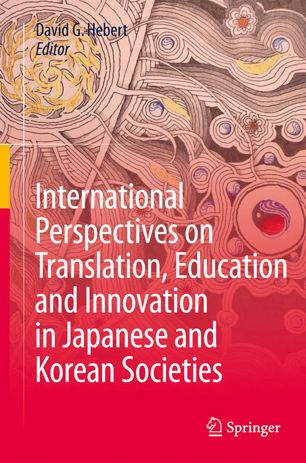

Most ebook files are in PDF format, so you can easily read them using various software such as Foxit Reader or directly on the Google Chrome browser.
Some ebook files are released by publishers in other formats such as .awz, .mobi, .epub, .fb2, etc. You may need to install specific software to read these formats on mobile/PC, such as Calibre.
Please read the tutorial at this link: https://ebookbell.com/faq
We offer FREE conversion to the popular formats you request; however, this may take some time. Therefore, right after payment, please email us, and we will try to provide the service as quickly as possible.
For some exceptional file formats or broken links (if any), please refrain from opening any disputes. Instead, email us first, and we will try to assist within a maximum of 6 hours.
EbookBell Team

4.8
64 reviewsThis book studies the three concepts of translation, education and innovation from a Nordic and international perspective on Japanese and Korean societies. It presents findings from pioneering research into cultural translation, Japanese and Korean linguistics, urban development, traditional arts, and related fields. Across recent decades, Northern European scholars have shown increasing interest in East Asia. Even though they are situated on opposite sides of the Eurasia landmass, the Nordic nations have a great deal in common with Japan and Korea, including vibrant cultural traditions, strong educational systems, and productive social democratic economies. Taking a cross-cultural and interdisciplinary approach, and in addition to the examination of the three key concepts, the book explores several additional intersecting themes, including sustainability, nature, humour, aesthetics, cultural survival and social change, discourse and representation.
This book offers a collection of original interdisciplinary research from the 25th anniversary conference of the Nordic Association for Japanese and Korean Studies (2013). Its 21 chapters are divided into five parts according to interdisciplinary themes: Translational Issues in Literature, Analyses of Korean and Japanese Languages, Language Education, Innovation and New Perspectives on Culture, and The Arts in Innovative Societies.